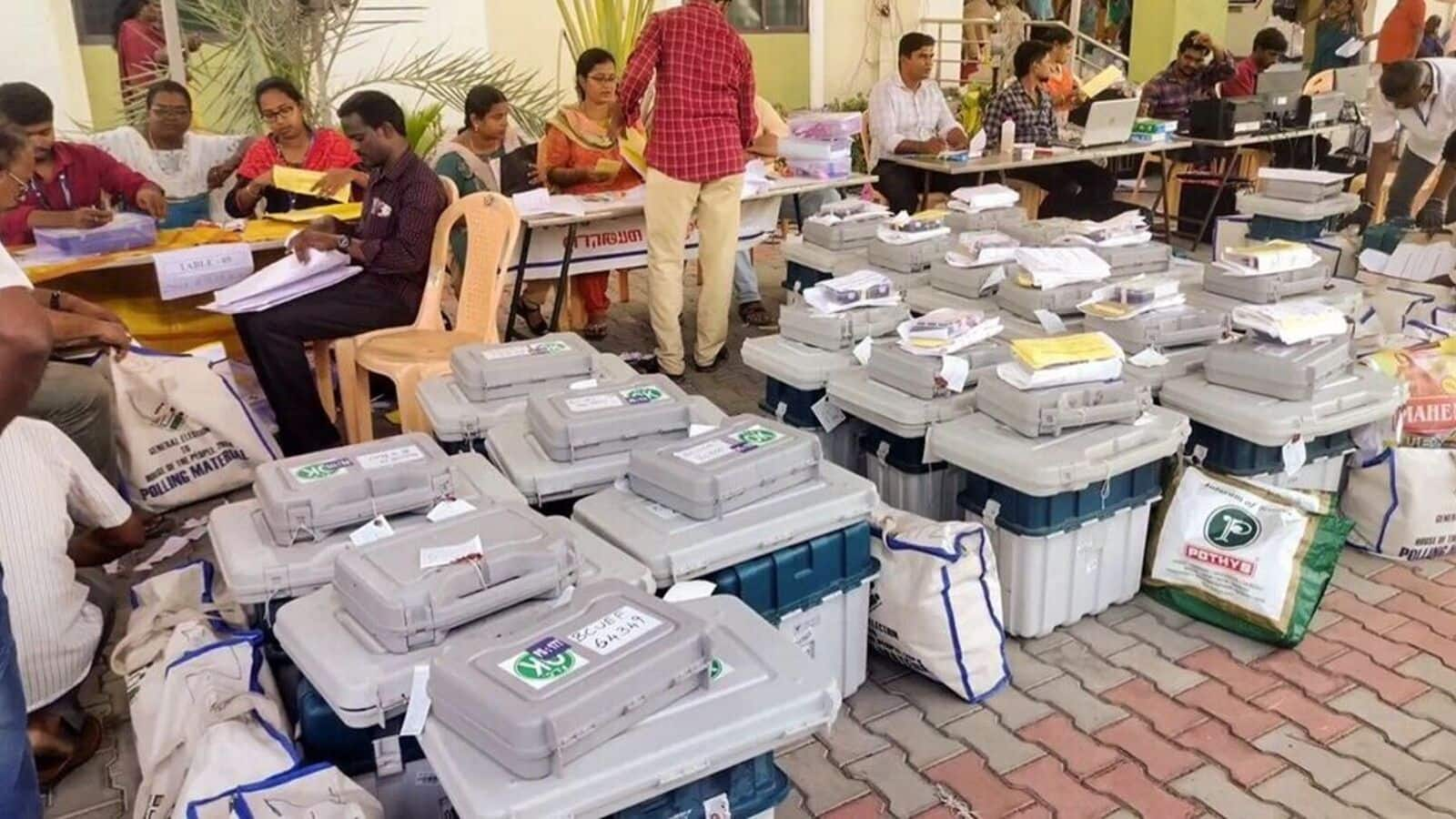
VVPAT case: Supreme Court says 'we can't control elections'
What's the story
The Supreme Court ruled on Wednesday that it cannot control elections and cannot dictate the functioning of the Election Commission of India (ECI). The remarks came while hearing petitions seeking the complete verification of votes cast using Electronic Voting Machines (EVM) with Voter Verifiable Paper Audit Trail (VVPAT). "The ECI has cleared doubts. We cannot change your thought process. We cannot issue a mandamus on the basis of suspicion," it said. The apex court has reserved its judgment for now.
Context
Why does this story matter?
The petitions, filed by the Association for Democratic Reforms (ADR) and activist Arun Kumar Agarwal, call for a more extensive verification process. Specifically, Agarwal has requested that all VVPAT slips be counted. The ADR's petition urges the court to direct the ECI and Centre to ensure that voters can use VVPATs to confirm their vote has been counted as recorded. Currently, the ECI randomly verifies VVPAT slips of EVMs from five voting booths per assembly segment in a parliamentary seat.
Post-voting procedure
SC inquires about post-voting storage procedures of EVMs, VVPATs
At the last hearing, Justices Sanjiv Khanna and Dipankar Datta heard all the legal arguments from the petitioners and representatives of the ECI. They also deliberated on what could be done to reassure voters that their vote had been counted correctly. The bench also asked the ECI officials to explain how EVMs and VVPATs work in court. Ahead of the EVM-VVPAT order, the Supreme Court again addressed a series of questions to the ECI on how EVMs work.
Voting transparency
EVMs are standalone devices that cannot be tampered with: ECI
Senior advocate Maninder Singh, representing the ECI, confirmed that an official would be available to answer all questions. Singh had also informed the court that EVMs are standalone devices that cannot be tampered with, although he did not rule out human error. Justice Datta emphasized the importance of maintaining electoral integrity, telling Singh, "You have to allay the apprehensions, both in the court and outside the court."
Voting evolution
Court dismisses idea of returning to ballot papers
The Supreme Court bench also warned the petitioners that they needed to trust someone, and that being suspicious of everything is not acceptable. It dismissed the idea of returning to ballot papers, citing the massive task of the electoral process in India and discouraging attempts to "bring down the system." Amid questions and apprehensions about the EVM voting system, opposition parties have demanded 100% counting of VVPAT slips for increased public confidence.